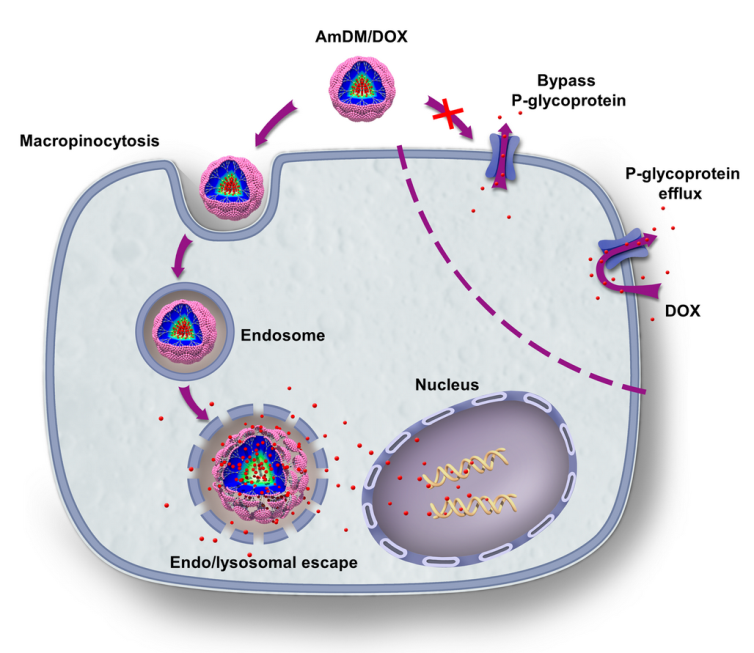Although considerable progress has been made in traditional cancer therapy, the complete cure and eradication of tumor still remains one of the greatest challenges on clinical medical and human health at present. A well-known hurdle is the multidrug resistance induced by repeating chemotherapy, causing high recurrence rate and therapeutic failure of tumor treatment in clinic. Moreover, high systemic toxicity of traditional anticancer drugs is another reason for eventual poor clinical outcome. To address these problems, the application of nanotechnology for drug delivery is widely expected to bring new hope for efficient anticancer treatment.
Recently, Dr. Xing-Jie Liang’s research group at National Center for Nanoscience and Technology of China made cooperation with Dr. Ling Peng’s research group at Centre Interdisciplinaire de Nanoscience de Marseille in France, they established an original nanomicellar drug delivery system based on an amphiphilic dendrimer (AmDM), which could generate supramolecular micelles to effectively encapsulate the anticancer drug doxorubicin (DOX) with high drug loading capacity (> 40%), thanks to the unique dendritic structure creating large void space for high drug accommodation. Due to their unique small size (~10 nm), the resulting AmDM/DOX nanomicelles can not only accumulate at the tumor lesions effectively via EPR effect, but also largely enhance the tumor penetration ability in tumors. The advancing pH dependent drug release property of the AmDM/DOX nanomicelles further contributed to the significantly enhanced drug concentration in tumor cells, resulting in highly enhanced therapeutic efficacy and effectively reduced the toxicity to normal tissues. The studies demonstrate that the drug delivery system based on nanomicelles formed with the self-assembling amphiphilic dendrimer constitutes a novel and effective drug carrier in cancer therapy.
This research work has been published in Proceedings of the National Academy of Sciences (Proc Natl Acad Sci USA. 2015, 112(10): 2978-2983.). This work was supported by Chinese Natural Science Foundation Key Project (31430031), National Distinguished Young Scholars Grant (31225009), Strategic Priority Research Program (XDA09030301) and the external cooperation program (121D11KYSB20130006) of BIC of the Chinese Academy of Sciences.

Fig. 1 The construction of amphiphilic dendrimer and formation of DOX-encapsulated AmDM/DOX nanomicelles via self-assembly, together with the proposed mechanism for enhanced anticancer effect.

Fig. 2 Proposed mechanism to effectively elude drug resistance by AmDM/DOX micelles.

